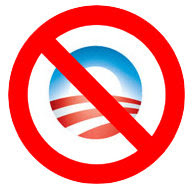Fifty years ago, Congress passed the landmark Landrum-Griffin Act to protect rank-and-file union members from malfeasance by union leaders. Senate hearings had uncovered serious corruption and other unethical practices inside the labor movement, and a bipartisan coalition emerged to shine the light of disclosure on union practices.
Nevertheless, Democrats in Congress and in the executive branch have often attempted to undercut that law's financial reporting and disclosure requirements. Prior to reforms adopted in the George W. Bush administration, for example, one union could get away with reporting a $62 million expenditure as nothing more than "contributions, gifts, and grants to local affiliates" -- with no further explanation. Unfortunately, the Obama administration is already showing that it wants to return to this nontransparent standard of financial disclosure.
Within days of the inauguration, the new leadership at the Labor Department moved to delay implementing a regulation finalized in January that would have shed much needed light on how union managers compensate themselves with union dues. The regulation required disclosure of receipts for expenditures and for the purchase and sale of union assets -- disclosures that would help deter embezzlement.
The Labor Department's Office of Labor Management Standards (OLMS), created to enforce the 1959 law, also recently announced that it would not enforce compliance with the conflict-of-interest disclosure form (the "LM-30" form) that was revised in 2007. Labor's Web site states that "it would not be a good use of resources."
Instead, union managers will be able to file decades-old, less enlightening disclosure forms while the department considers whether to "revise" (i.e., gut) the current disclosure requirements. But what could be a better use of department resources than enforcing the laws under its jurisdiction?
From 2001-2008, the Labor Department secured more than 1,000 union fraud-related indictments and 929 convictions. This enforcement record was accomplished even though the enforcement office accounts for less than 0.1% of the department's budget. OLMS is the lone federal agency with the job of protecting worker interests in how their unions are managed. The last Congress increased President Bush's budget request for the Labor Department by $956 million even as it targeted OLMS for a budget cut.
Union membership peaked in the 1950s, when more than one-third of American workers belonged to a union. Today, just 7.6% of American private-sector workers belong to a union. A Rasmussen Research survey conducted in March found that 81% of nonunion members do not want to belong to a union.
The response by union leaders and their Democratic allies to declining union membership is the Employee Free Choice Act. To increase unionization, it would deprive workers of private balloting in organizing elections, and it would substitute a signature-card process that would expose workers to coercion. The bill would also deny workers the right to ratify, or not ratify, labor contracts drafted by government arbitrators when negotiations in newly unionized workplaces exceed the bill's rigid timetable.
The Obama administration likes to say that it is "pro-worker." But something is amiss when its labor priorities are forcing unionization and labor contracts on American workplaces, and denying union members information on how their dues money is spent.
Subscribe to:
Post Comments (Atom)

No comments:
Post a Comment